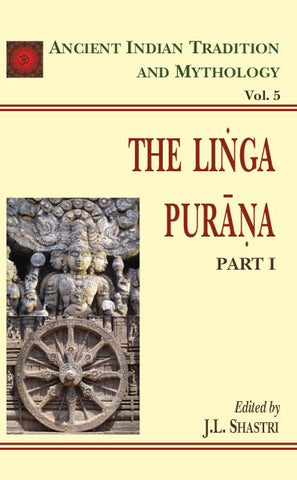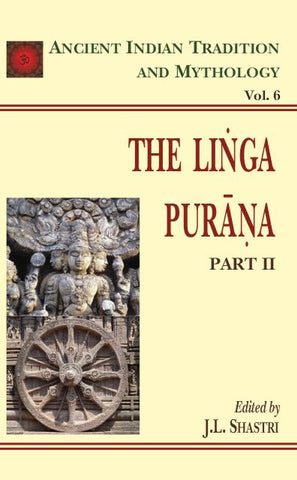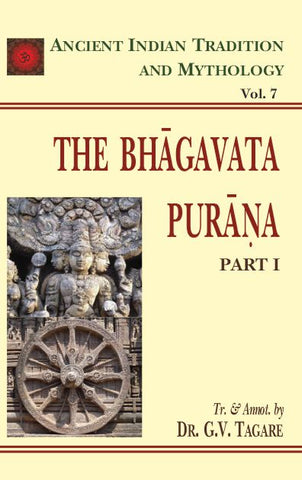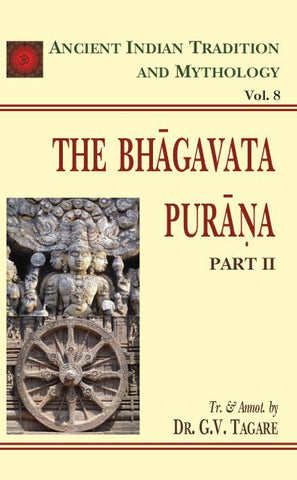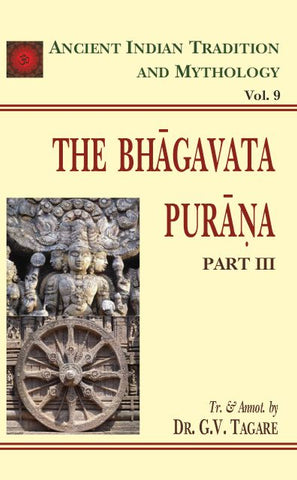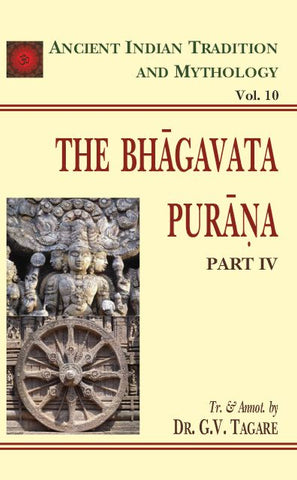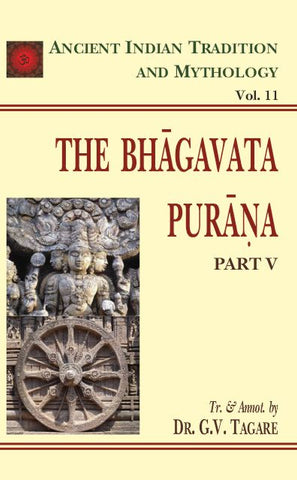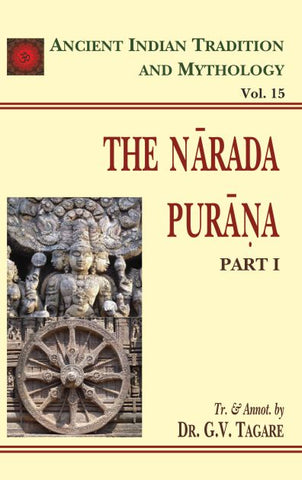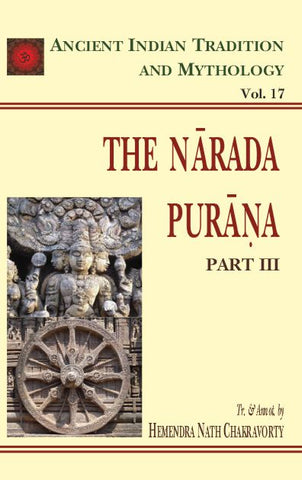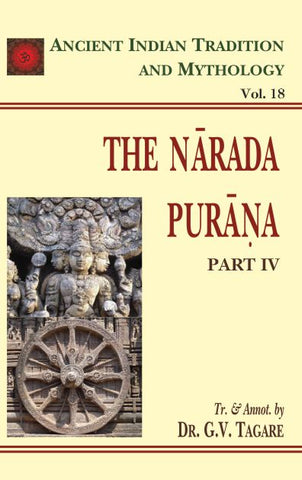Your cart is empty now.
Your search for "purana" revealed the following:
Linga Purana Pt. 1 (AITM Vol. 5): Ancient Indian Tradition And Mythology
The present volume contains Lingapurana in English translation. According to the Vipupardeal, the sage Krsna Dvaipayana Vyasa compiled a Puranasamhita from the various ancient episodes and imparted it to his disciple Romaharsana. The latter composed his own Puranasamhita among his disciples. Kasyapa, Săvarni and Samsapayana composed their own. The traditional list is given by several Puranas. comprises the following: (1) Brahma, (2) Padma, (3) Vişņu, (4) Vayu, (5) Bhagavata, (6) Náradiya, (7) Märkandeya, (8) Agni, (9) Bhavisya, (10) Brahmavaivarta, (11) Linga, (12) Varäha, (13) Skanda, (14) Vamana, (15) Kurma, (16) Matsya, (17) Garuda, (18) Brahmanda. Read More
English, 536 Pgs. (HB)Linga Purana Pt. 2 (AITM Vol. 6): Ancient Indian Tradition And Mythology
The present volume contains Lingapurana in English translation. According to the Vipupardeal, the sage Krsna Dvaipayana Vyasa compiled a Puranasamhita from the various ancient episodes and imparted it to his disciple Romaharsana. The latter composed his own Puranasamhita among his disciples. Kasyapa, Săvarni and Samsapayana composed their own. The traditional list is given by several Puranas. comprises the following: (1) Brahma, (2) Padma, (3) Vişņu, (4) Vayu, (5) Bhagavata, (6) Náradiya, (7) Märkandeya, (8) Agni, (9) Bhavisya, (10) Brahmavaivarta, (11) Linga, (12) Varäha, (13) Skanda, (14) Vamana, (15) Kurma, (16) Matsya, (17) Garuda, (18) Brahmanda. Read More
English, 308 Pgs. (HB)Bhagavata Purana Pt. 1 (AITM Vol. 7): Ancient Indian Tradition And Mythology
The four noble truths are the most widely recognized teaching of the Buddha today. This book is the first comprehensive study of the teaching as it appears in the Tipitaka, the canon of Theravada Buddhism. By first identifying the four noble truths as a "right view", the author traces the teaching throughout the canon and the commentaries. There are two distinct patterns that the four noble truths follow: first, they appear in stories of the Buddha`s biography as a symbol of his enlightenment; and second they appear in extended networks of the Buddha`s teachings as propositions of doctrine. Surveying the... Read More
English, 448 Pgs. (HB)Bhagavata Purana Pt. 2 (AITM Vol. 8): Ancient Indian Tradition And Mythology
The four noble truths are the most widely recognized teaching of the Buddha today. This book is the first comprehensive study of the teaching as it appears in the Tipitaka, the canon of Theravada Buddhism. By first identifying the four noble truths as a "right view", the author traces the teaching throughout the canon and the commentaries. There are two distinct patterns that the four noble truths follow: first, they appear in stories of the Buddha`s biography as a symbol of his enlightenment; and second they appear in extended networks of the Buddha`s teachings as propositions of doctrine. Surveying the... Read More
English, 450 Pgs. (HB)Bhagavata Purana Pt. 3 (AITM Vol. 9): Ancient Indian Tradition And Mythology
The four noble truths are the most widely recognized teaching of the Buddha today. This book is the first comprehensive study of the teaching as it appears in the Tipitaka, the canon of Theravada Buddhism. By first identifying the four noble truths as a "right view", the author traces the teaching throughout the canon and the commentaries. There are two distinct patterns that the four noble truths follow: first, they appear in stories of the Buddha`s biography as a symbol of his enlightenment; and second they appear in extended networks of the Buddha`s teachings as propositions of doctrine. Surveying the... Read More
English, 459 Pgs. (HB)Bhagavata Purana Pt. 4 (AITM Vol. 10): Ancient Indian Tradition And Mythology
The four noble truths are the most widely recognized teaching of the Buddha today. This book is the first comprehensive study of the teaching as it appears in the Tipitaka, the canon of Theravada Buddhism. By first identifying the four noble truths as a "right view", the author traces the teaching throughout the canon and the commentaries. There are two distinct patterns that the four noble truths follow: first, they appear in stories of the Buddha`s biography as a symbol of his enlightenment; and second they appear in extended networks of the Buddha`s teachings as propositions of doctrine. Surveying the... Read More
English, 464 Pgs. (HB)Bhagavata Purana Pt. 5 (AITM Vol. 11): Ancient Indian Tradition And Mythology
The four noble truths are the most widely recognized teaching of the Buddha today. This book is the first comprehensive study of the teaching as it appears in the Tipitaka, the canon of Theravada Buddhism. By first identifying the four noble truths as a "right view", the author traces the teaching throughout the canon and the commentaries. There are two distinct patterns that the four noble truths follow: first, they appear in stories of the Buddha`s biography as a symbol of his enlightenment; and second they appear in extended networks of the Buddha`s teachings as propositions of doctrine. Surveying the... Read More
English, 457 Pgs. (HB)Narada Purana Pt. 1 (AITM Vol. 15): Ancient Indian Tradition And Mythology
This present Volume in the series of Ancient Indian Tradition and Mythology. This Volume deals exclusively with the Tantric Ritual connected with the worship of deities. It presents in an elaborate way, the method of worship of the deity, particularly, the mantra, Nyasa, meter, sage, mudra, dhyana, etc. in relation to worship. Though the deity to be worshipped is Pasupati (the lord of Pasus=Jivas, i.e. Lord Siva) emphasis is placed on the worship of his Saktis— the different manifestations of his power such as Tara, Kali, Bhairavi, Lalita, Bhuvanesvari, Durga, Sarasvati, Savitri, and Mahalaksmi. The aspirant (sadhaka) can undertake this... Read More
English, 426 Pgs. (HB)Narada Purana Pt. 3 (AITM Vol. 17): Ancient Indian Tradition And Mythology
This present Volume in the series of Ancient Indian Tradition and Mythology. This Volume deals exclusively with the Tantric Ritual connected with the worship of deities. It presents in an elaborate way, the method of worship of the deity, particularly, the mantra, Nyasa, meter, sage, mudra, dhyana, etc. in relation to worship. Though the deity to be worshipped is Pasupati (the lord of Pasus=Jivas, i.e. Lord Siva) emphasis is placed on the worship of his Saktis— the different manifestations of his power such as Tara, Kali, Bhairavi, Lalita, Bhuvanesvari, Durga, Sarasvati, Savitri, and Mahalaksmi. The aspirant (sadhaka) can undertake this... Read More
English, 430 Pgs. (HB)Narada Purana Pt. 4 (AITM Vol. 18): Ancient Indian Tradition And Mythology
This present Volume in the series of Ancient Indian Tradition and Mythology. This Volume deals exclusively with the Tantric Ritual connected with the worship of deities. It presents in an elaborate way, the method of worship of the deity, particularly, the mantra, Nyasa, meter, sage, mudra, dhyana, etc. in relation to worship. Though the deity to be worshipped is Pasupati (the lord of Pasus=Jivas, i.e. Lord Siva) emphasis is placed on the worship of his Saktis— the different manifestations of his power such as Tara, Kali, Bhairavi, Lalita, Bhuvanesvari, Durga, Sarasvati, Savitri, and Mahalaksmi. The aspirant (sadhaka) can undertake this... Read More
English, 426 Pgs. (HB)
